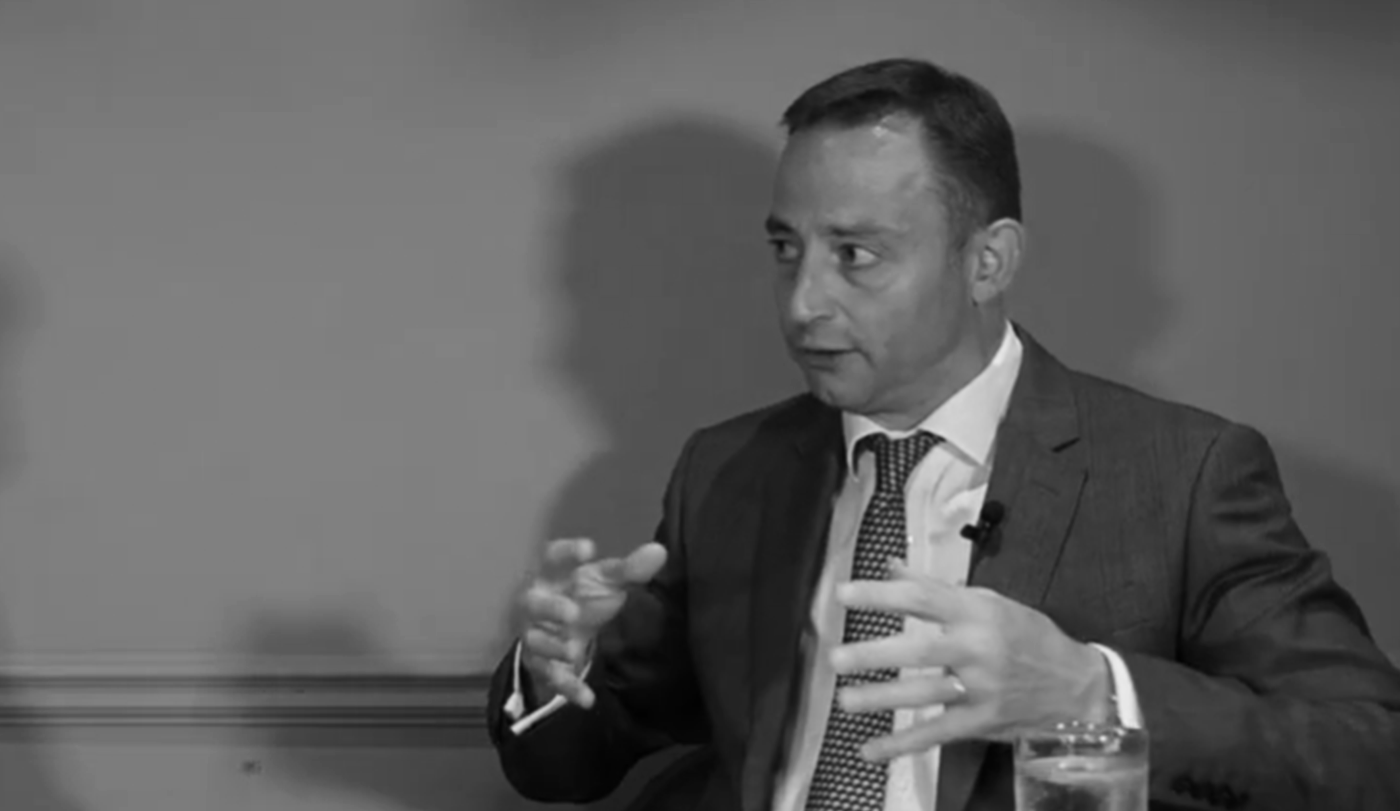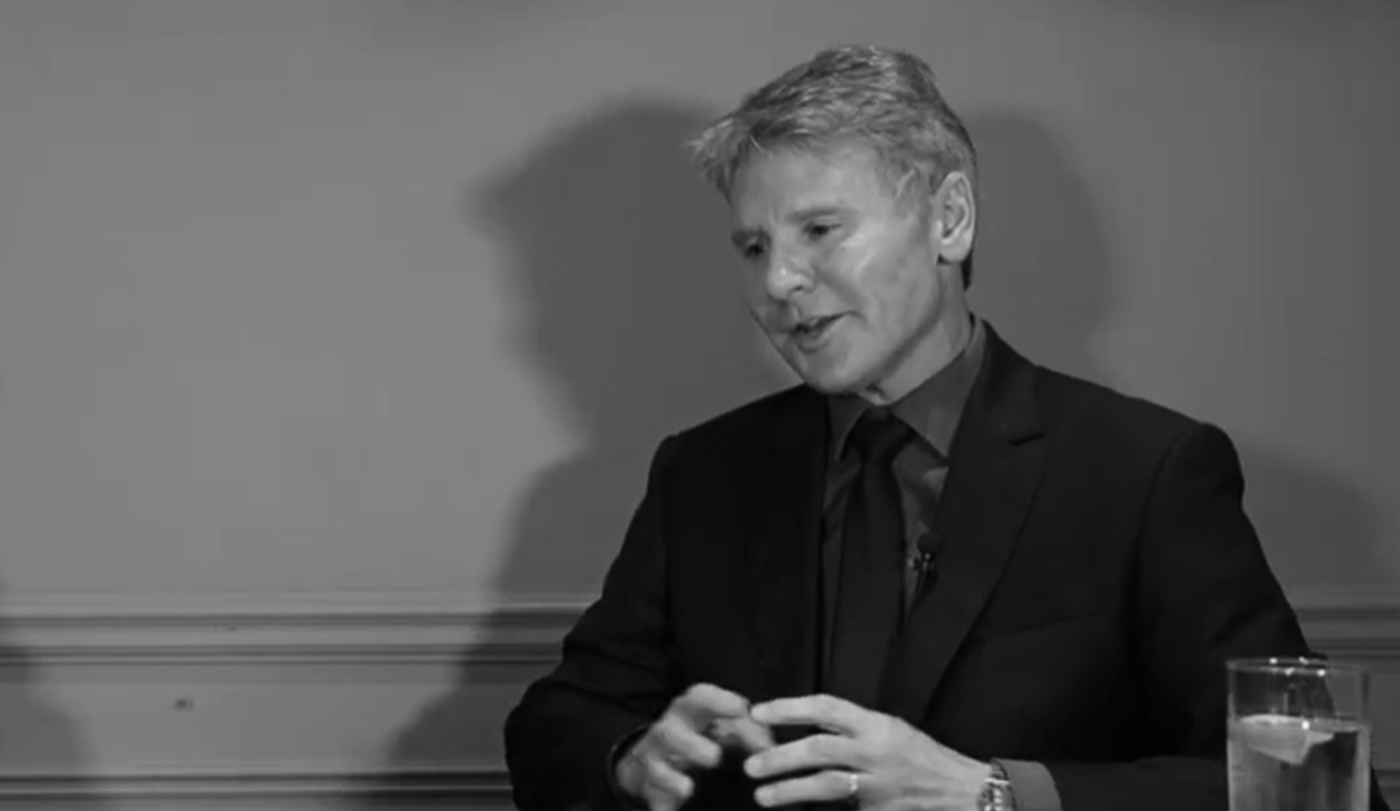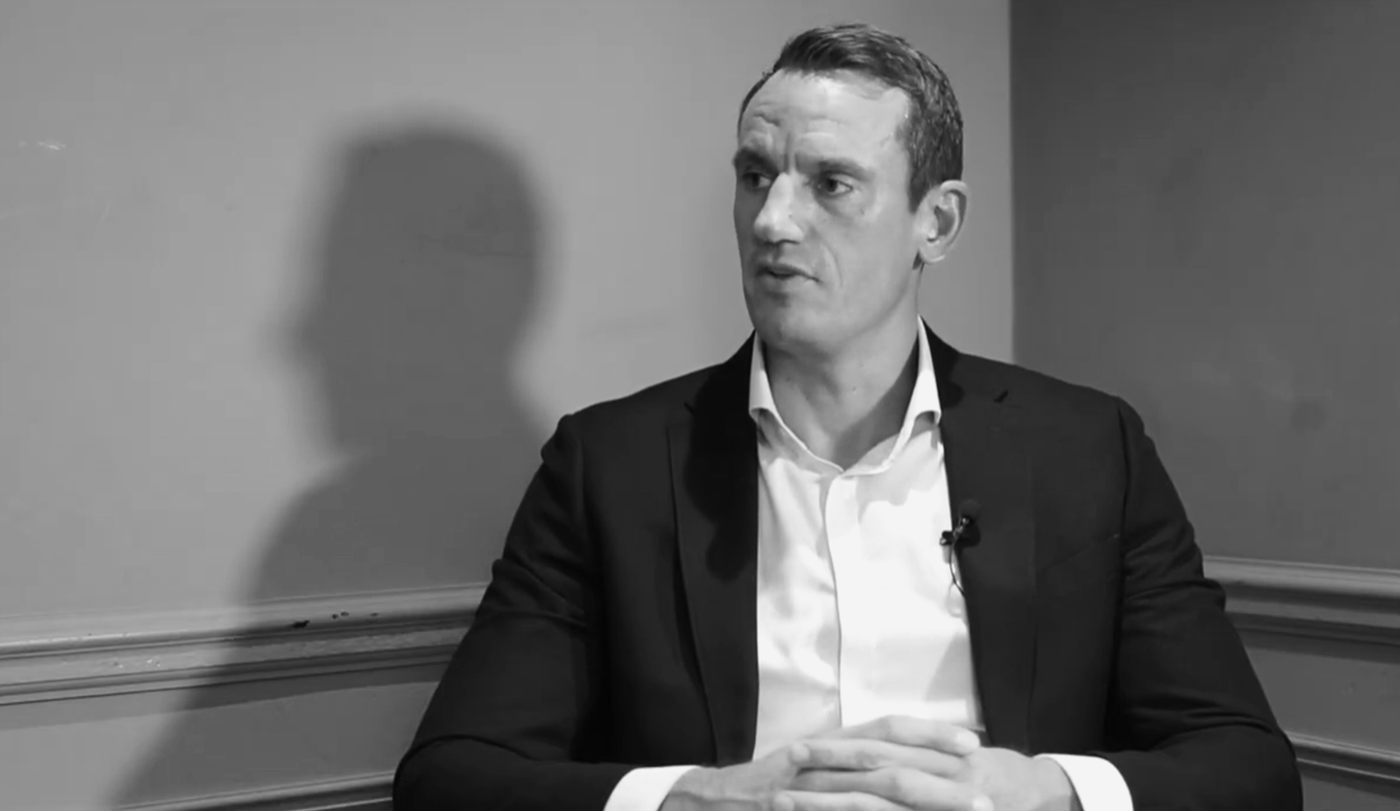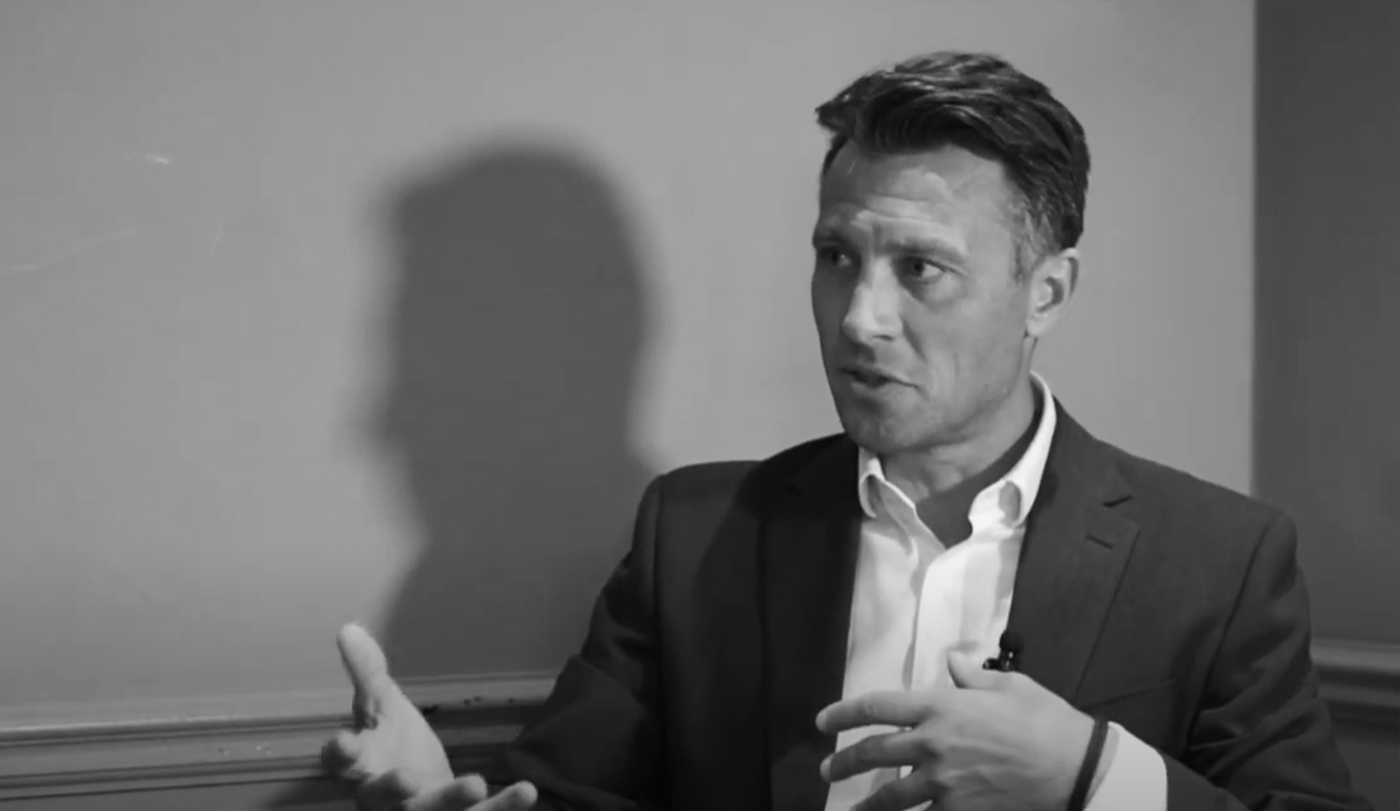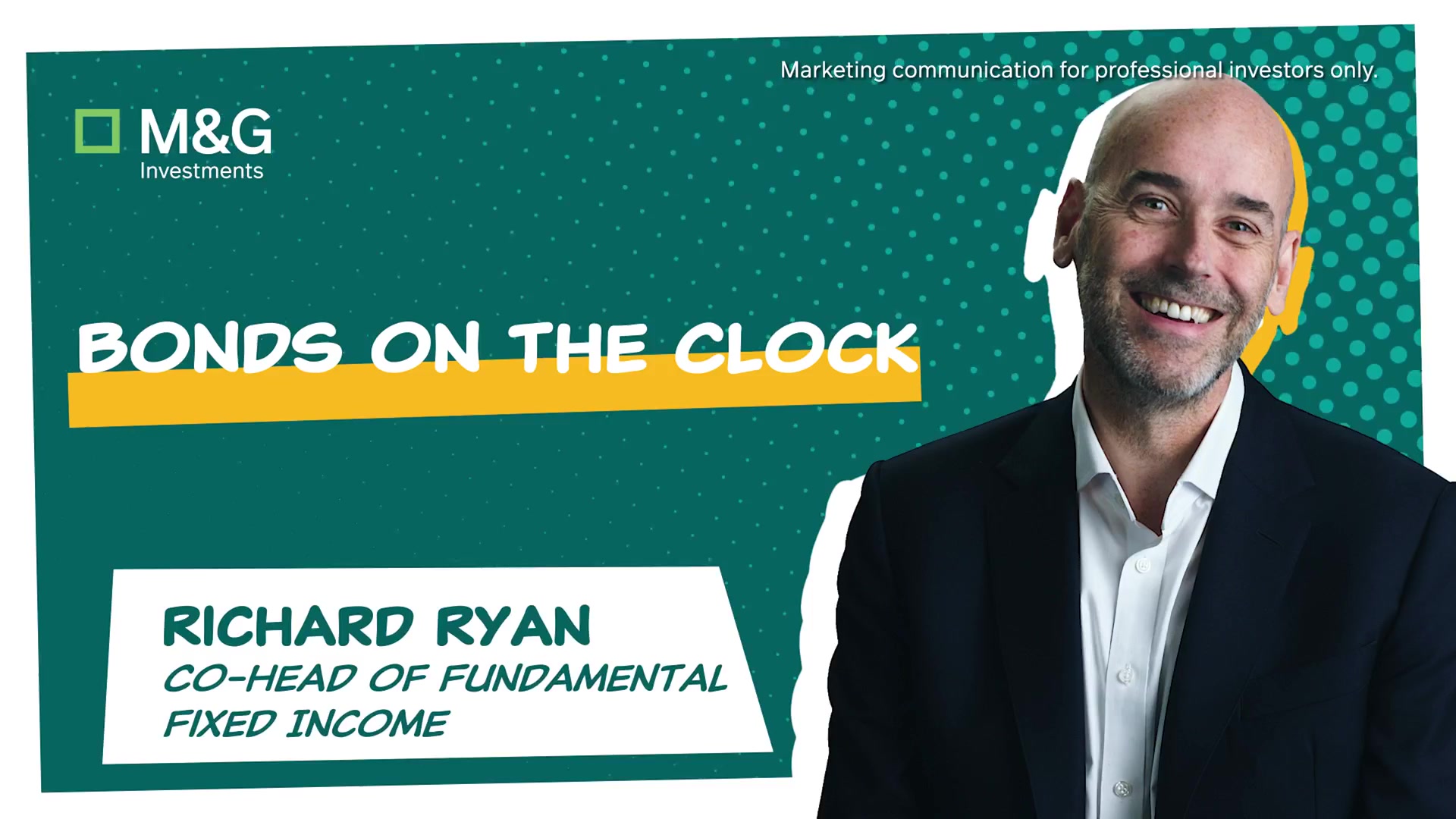A short clip from our series of interviews with UK fund researchers and fund selectors - plus episode transcript
Transcript of ‘Choice Words’ Episode 1:
Rob Burdett, with Julian Marr
JM: Well, hello and welcome to the latest in our series of ‘Choice Words’ videos where we get to talk to key decision-makers in the world of fund selection and fund research. I am Julian Marr, editorial director of Wealthwise Media, and today I am delighted to be talking to Nedgroup Investments head of multi-manager, Rob Burdett. Hi, Rob.
RB: Hi Julian. Good to be here.
JM: Very sweet of you to say so. So the aim of this little chat – and, because I am still doing the first few, I am going to read this out so I get it right – is to find out a bit about how you think about life, both within the wonderful world of investment and outside it; what you brought you into the sector, and what keeps you here; and then what makes you tick and what makes the business you work for tick. So, obviously, an absolute walk in the park and, in that vein, we will start with a nice, easy question: what excites you about the current investment outlook and what causes you any concern?
RB: I think one of the most interesting things about the current market is there is a genuine cost of capital now. With interest rates having risen and with the volatility and expectations for rate cuts or otherwise, that, I think, creates opportunities for decent returns – whatever your style, whatever market you are in. So, after the 15 years or so post-GFC of zero to negative rates, I think this is the most exciting thing about markets right now.
JM: Yes – because there was no penalty for making mistakes, was there? You make a bad decision as a business and it is, Oh, it’s gone wrong so I go out, I get more money and then we try again. Whereas now the stakes are raised.
RB: Exactly.
JM: Better news for active managers then?
RB: Definitely.
Beware a lack of humility
JM: That would be nice. So apparently I am going to be happily displaying my biases in these videos as well. OK – given you have this wonderful panoply of choice that can help set you apart from the crowd now, what do you most look for in an investment? And what do you see as red flags?
RB: What we are looking for – both in a fund manager and also so that we understand the fund and the manager ourselves – is either an individual or a team that has found a way of running money that works for them. We don’t think there is a right or a wrong way but good managers work out something that works for them and it is up to us to know what they need for that to persist – be it the team they are with, the market conditions, the amount of money they’re running … these are things that we look for. In terms of red flags, I think a lack of humility is a little bit of a warning sign. That could be quite mild – it could be focusing on what I would call ‘career risk’, so relative returns and peer group rankings, rather than the absolute loss of capital and making money over the long term in absolute terms.
JM: This is unfair but, on a no-names basis, what is the most egregious lack of humility you have come across in your decades in this business?
RB: Well, I suppose, when I first met Anthony Bolton, I was rude enough to ask him how many decisions he got right. He answered between 55% and 60%, which I thought was low at the time but has been borne out by other great managers since then – and it is running the winners and cutting the losers that makes sense. I have met managers, however, who claim they are getting 80% to 90% of their decisions right – and that is quite egregious, in my view.
JM: It is amazing because you would think they would show up in the performance charts with that sort of hit rate!
RB: They do – fleetingly!
Embrace innovation – when it is appropriate
JM: That is a good way of looking at it! Trying to draw a distinction between ‘traditional investments’ – cash, equities, bonds – and, well, ‘non-traditional’ ones, to what degree do you think professional investors should be looking beyond the former? And to what?
RB: Well, I think we are an industry that innovates – or at least attempts to – and I think it is our duty as participants to keep abreast of those opportunities and work out which ones are genuinely adding to our choice. And I guess, for me, investing in absolute return funds pre and during the GFC in 2007 – this was before the IA sector existed and Ucits III rules were quite new – that was useful to us through that time. We had positive returns in a very significant negative year – probably the most significant negative year of my career. But from that, arguably, the ‘Gars’ bandwagon appeared and that was something to be avoided – clearly – and, thankfully, we did. So you have to take care – but certainly I want to embrace innovation when it is appropriate.
JM: And is there anything you are particularly thinking about at the moment – say, looking ahead over the next 12 months?
RB: I think active ETFs is an area where we will see some interesting further developments. There are also some big participants in Europe at the moment that haven’t really gained traction in the UK – and it is a bit ‘chicken and egg’ there. But that, I think, allows for a lot of the settlement issues that are archaic in the funds industry to be got rid of; it allows more price and timing perfection as well; and it also avoids market-timing of funds of funds and things like that.
JM: Does it clear up ‘brain space’ – as in, That is my general bet and then I can get to play around the edges?
RB: Well, I think it is a bit more than that. It could be the wholesale move of fund management into the ETF structure – but that is a long way off, I think, because there are too many vested interests in avoiding that happening too fast.
JM: OK. Maybe we will have a different series called ‘Vested Interests’ down the line. But let’s all play nice at the beginning of Wealthwise Media. Now, client communications is so important – whether that be with the advisers you are creating solutions for or the end-clients. I have been hearing more and more chat about attracting the ‘right type’ of client – which I suppose, on one level, sounds a bit entitled. That said, on another I think it is important because it drills down to the idea of managing clients’ expectations properly. So what drives your approach to client comms – and should professional investors set out to attract that ‘right type’ of client?
RB: Good communication solves and avoids problems and bad communication creates them. So I think it has got to be at the root of what we do. We are an industry that looks complex and is overweight anachronisms – sorry, acronyms …
JM: Well, you might be right! You have created a new word – this is an industry full of ‘anachronyms’!
RB: Yes. Some new jargon for an industry that is overweight jargon – so I clearly need to work on my communication! But I think educating clients in the basics of investing is often forgotten and we go down a rabbit hole of complexity that we don’t need to – and I think we can be better than that.
Architecture’s loss …
JM: A more personal question now – what was your path into investment and, in an alternative reality, if you had not gone into investment, what would you be doing now?
RB: I did economics at A-level and, as part of that, we did a competition called ‘Stock Pilot’. It was sponsored by Williams & Glyn’s Bank and you got a fictitious £50,000 to invest and swap it once a month. Our little set of six of us, we really enjoyed that and it became our focus – rather than economics! – and we came eighth out of 2,000 schools. I still have my Parker pen prize as sort of my mojo – I keep it close by, just in case! And that is really what got me into this. Fortuitously – for the first time in about 15 years, I think – there was a job as a trainee stockbroker, as they called it then, in the only wealth manager in my hometown. So I was desperate to get that job – and I was lucky enough to get it.
JM: And in the alternative universe, what would you be doing, if you had not gone down that route?
RB: When I was at school – as I’m sure many of us did – there was a software package that was supposed to predict your career and so on. And, in my case, it did say stockbroker – but also architect, which was slightly leftfield. Still, I do have a bit of an interest in modern architecture and so on so maybe there is some merit in that, I don’t know, but that industry was probably saved from me, to be honest.
JM: OK, so that is another series: ‘Investment Grand Designs’ – or ‘Open Architecture’ perhaps! Are you prepared to admit to the biggest investment mistake you have made and what did you learn from it?
RB: OK. My career has mostly been investing in funds so the prospect of zero return is mercifully rare and zero for me – no fund has ever gone to zero – but I think Covid was one of the harshest lessons. In all the previous major collapses, all the multi-manager funds I have been lucky enough to be involved with outperformed – and that is one of the virtues I hope multi-manager gives you.
But that was not the case with Covid – and learning how correlations come in, how already extreme interest rates can go further, was a difficult, harsh lesson and March 2020 was a brutal month. Diversification didn’t work, value didn’t work – so that was like your whole portfolio benefit and another half of it going missing in action when you need it. So I have tried to learn about trends valuations, paying attention to how governments address the stimulus they put in around those markets – which I thought I had learnt from the GFC, but clearly not.
4,500-mile road-trip round the UK
JM: Always good to have a little refresher. Now, I am not sure why I ask this question – except that I love it and, one day, I am going to get a great answer in return – so, outside of work, what is the strangest thing you have ever seen or done?
RB: I think it has to be spending 18 days in a Reliant Robin with my then business partner, driving around the coastline of mainland Great Britain – 4,500 miles at close-quarters was quite strange. But ultimately rewarding in terms of our faith in human nature – the extraordinary generosity we saw, in spirit and hard cash, on that journey.
JM: That was for Cascaid, wasn’t it – with Gary Potter. Clearly, I am assuming there was an ‘Only Fools and Horses’ connection – but why did you decide on a Reliant Robin?
RB: There is something called the ‘Tuk-tuk Challenge’ in India that we looked at – but Gary felt ‘Delhi belly’ was too high on the risk threshold. So we looked at tuk-tuks around the UK and then thought a Robin Reliant was the next silliest thing, because tuk-tuks are quite hard to come by and they have quite a lot of restrictions on them – as a Reliant Robin should have, in my experience! Lethal in the wrong hands – that being Gary’s hands in those cases.
JM: That was assumed! Right, best and worst-case scenario – not for you driving around the UK with Gary, but for the future of wealth in the UK. Let’s start with the worst case so we can aim to finish on a high.
RB: The worst case, it is probably easy to say, is the race to the bottom on fees and the short-termism around investment performance – if I can have two. And I guess the best outcome is perhaps the reverse of that – that we start to see value, not price, emerge. That is difficult with things like value assessment being annualised – it is part of the problem of short-termism. And I think we run the risk of investors continuously digging up the plant before the roots have taken hold and moving into what looks the right thing that turns out – again – to be about to go through a dip. So that would be my hope – but we are in a difficult place with short-termism and the race to the bottom on fees, at the moment.
Two recommendations
JM: Thanks for that. Last question: you are here because of the choices you make in a professional context but I am now looking for two personal ones – two recommendations. One should be a book recommendation; the other, a free choice – podcast, movie, holiday destination?
RB: For the book, a good industry friend – who you may well have on, at some point – gave me a recommendation for a book when I left my last job. It is called Quit, by Annie Duke, who is a world poker champion, and it is basically a series of analyses on real-life scenarios where we, as humans, tend to quit too late. It could be quitting on reading a bad book, on an investment, on a relationship or on a job – and there are some really good lessons in there, I think, around investing and life. So I definitely commend that to the house.
The second one comes courtesy of a US fund manager, who came over once and was ecstatic about a musical called Hamilton. I am not generally a fan of the Andrew Lloyd Webber sort of musical genre but I took my daughter, who is passionate about dance, to see it and it changed her mind about musicals. She has a similar view to me on musicals and what they could be. But Hamilton is full of energy, really vibrant, with a bit of history. We have ended up seeing it three times – so, whether you do or don’t like musicals, I’d say Hamilton.
JM: Do you know, I was not expecting that answer but that is the point, I guess – to get to the unexpected outcome. And Annie Duke, I mean, she is just a genius on so many levels – poker, writing, management consultancy. So yes, top ‘Choice Words’ choices. Rob Burdett, thank you so much for talking to us today.
Please do look out for further Choice Words episodes as they are published


